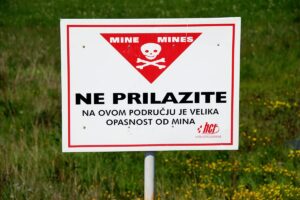New sustainability reporting demands will necessitate enhanced efforts across businesses for transparent implementation, impacting not only larger EU companies, but also Western Balkan partners through value chains
The European Green Deal is a plan with objectives to achieve a low carbon, resource efficient economy/society in the EU. Since the late-2019 publishing of the Green Deal, the European Commission has substantiated each objective with the implementing of measures. Some are still in the parliamentary approval process and will only come into force in the following years. Most will be compulsory, being enforced with EU regulations that are applied directly instead of directives that are currently the main mode of common EU environmental legislation. A lot of the new regulations will need to be supported with additional implementing regulations that detail technical measures for states and companies to be compliant with the new demands.
New demands, especially for reporting, which will be more detailed and broader in order to encompass sustainability indicators along value chains, will require additional efforts in business to ensure transparent and verifiable implementation in everyday business. Though these requirements are aimed at larger companies in the EU, they will spillover to SMEs operating within the EU and partners outside the EU area through value chains.

I would recommend following legislative developments in the EU, including them in state strategies to incorporate a business-friendly environment and work with your partners in EU, with whom you will be ascertaining new developments and requirements to ensure compliance.
The Green Deal’s regulations will predominantly be compulsory and directly enforced through EU regulations, shifting away from the current reliance on directives for common EU environmental legislation
In the EU accession process, the countries (and chambers) of the Western Balkans have mastered the European mechanisms of projects, the means to implement them and the method to implement them successfully.
One area that should perhaps receive even more attention in the context of the Western Balkans is the circular economy, with all the associated “transitions”. The Western Balkan countries have the need, experience and potential to integrate this area into the economy more intensively – for the sake of sustainability and looming ESG requirements. Among the tangible potentials, I can mention only one with direct current profitability: rare earth minerals in abandoned and devastated mining and industrial sites. The most valuable raw materials of the future lie there, discarded. Technologies for their extraction are being developed increasingly, with the only question being whether Slovenian providers are big enough “players” to tackle them.






